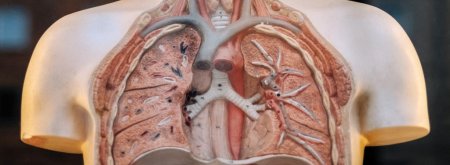Studying ... Medicine?
Medical school is a hugely exciting time where not only do you get to study the human body – its pathology, how to diagnose and manage disease – but you get to meet and interact with people from all walks of life from all corners of the globe. There will be opportunities to try and experience new sports, music and entertainment and even food! The schedule however, is busy.
You may see your colleagues studying humanities and envy their less intensive timetables when you are in nine to five most days. In spite of this, as a wise doctor once told me when I was a medical student, you will not have as much time as this again, so use it well. One of my current favourite pieces of advice for surviving medical school is “Work hard, play hard, for the glory of God”.
The key issues facing Christian medics are vast and further complicated by our own upbringing, experiences and where we are on our journey of faith. Two broad categories are how we deal with ourselves and how we deal with the world.
Dealing with ourselves
Unfortunately, the medical world can be toxic to the Christian. Harmful toxins include pride, perfectionism, ambition, suffering, stress and burnout; and to add to the toxicity we find unhelpful ways to cope with them. These cause us to put God at the bottom of our list of priorities in life, to strive to be the best with a disregard of whom we have to trample on to get there. We constantly compare ourselves to our Christian and non-Christian colleagues and sulk or disengage in the face of our imperfections and inadequacies, making it harder for God to use us. Our spirit is crushed by the heavy workload, the isolation, the demands of our studies and jobs. We become so downcast at the enormity of the need and suffering experienced by many, that we forget our calling and what a huge privilege it is to be God's hands and feet in this world (Luke 9:2).
As an antidote, I urge you to prioritise your walk with God (Joshua 1:8) and prioritise His kingdom (Matthew 6:33). Work hard for him and his glory (Colossians 3:17) and make the most of every opportunity (Ephesians 5:15–16; Colossians 4:5). It doesn’t matter what area you focus on as a medical student or doctor; we need Christians in all aspects of university life, and in all medical specialties across the world (Colossians 3:23–24). Just do it for Him, stand out and make a difference, because if you stand for nothing, you will fall for anything (Joshua 23:6).
Dealing with the world
Living for Christ is of utmost importance, but what does that look like for a medic?
Medicine is fascinating and we are often directly confronted with a world that, though created by a loving God, has fallen away from Him. We see the preciousness of new life in the delivery suite alongside the crushing nature of loss in a hospice, the release of relief at leaving hospital after a major operation and the heartbreak of a new cancer diagnosis. How do we see God in these, and let him use us to walk alongside our patients and their families, as well as our colleagues?
The key is the gospel and its truth (John 3:16). This should shine out every day of our lives in medicine and in the world (Philippians 2:15), through our saltiness (Matthew 5:13) and our distinctiveness (Romans 12:2).
The gospel and its truth should shine out every day of our lives in medicine
This may be seen in the honesty and integrity with which we conduct ourselves during exams, or the resilience and calm with which we face failures or mistakes. It will be shown by the respect with which we treat our colleagues and patients by refusing to talk about them behind their back (Proverbs 21:23; Ephesians 4:29), and in the way we speak for the helpless (Proverbs 31:8–9) and care for the most vulnerable (like the Hebrew midwives in Exodus 1:15–20). Fundamentally, it is the gospel that changes the way we see and respond to the world.
Tell your housemates that you attend church and invite them to missions week. I was surprised as a fresher at how willing my non-Christian friends were to attend Christmas events. Explain and share your Christian worldview on, for example beginning and end of life ethics. Engage with and challenge the prevailing secular views – how can a good and loving God allow suffering? Hasn’t science disproved the existence of God?
I realised that I don’t have to have all the answers, but just be willing to share, engage and explore
I remember one conversation in the library with a staunch atheist friend. He brought string theory in to the discussion and I was sideswiped. I hated physics at school and had no idea how to engage with his objection. I went away dejected. So I decided to read up on apologetics and positive deconstruction.[1] I realised that I don’t have to have all the answers, but just be willing to share, engage and explore. The next time that happened I was ready: “That’s a really interesting point; I’d love to explore that further with you”. Once people know you are a Christian, they are often curious to hear and discuss your view on a wide range of issues.
Further practical advice to help you along the way: Find (and regularly attend) a good church (Hebrews 10:25). Join a Christian Union and Christian Medical Fellowship (CMF) group. Find a group of Christians (who may or may not be fellow medics) you can be accountable to, who can help you guard against and recognise the toxins. Read and reflect on books, articles and journals, so as to engage with healthcare topics such as medical ethics. More importantly, read and ponder the Bible so you grow up in your faith alongside your knowledge of medicine (Hebrews 5:12–14), that you may know and tell the gospel throughout your career and beyond. Do this all for His glory and His kingdom.
Further Resources
Books
- John Chapman, Know and Tell the Gospel (The Good Book Company, 1998)
- Rebecca Manley Pippert, Out of the Saltshaker (IVP, 2010)
- Peter Saunders, The Human Journey (CMF, 2015)
- John Wyatt, Matters of Life and Death (2nd edition, IVP/CMF, 2009)
- John Lennox, God’s Undertaker: Has Science Buried God? (Lion, 2006)
Online
The Christian Medical Fellowship website contains a wealth of resources. Two that are particularly helpful are:
- CMF files: A collection of short papers on key topics facing Christians in healthcare.
- The Doctor’s Life Support: This daily devotional written by and for doctors is a vital resource to help keep your focus on the Lord in the busy-ness of medical life. Also available as a book from the CMF bookstore.
References
[1] For more on positive deconstruction, see Deconstructing a Worldview by Nick Pollard.



